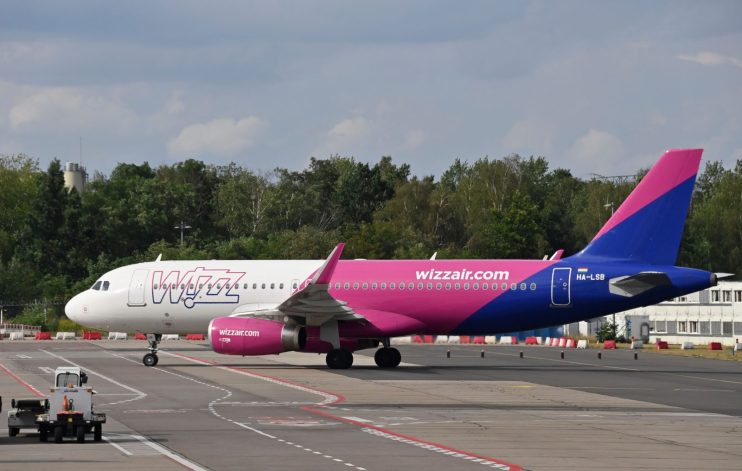Wizz Air trims profit forecast as Pratt & Whitney engine issues bite

Wizz Air narrowed its annual income guidance for 2024 despite swinging to record profit, as engine issues at a key supplier continue to bite.
The low-cost carrier said it now expects net income guidance to come in at a range of €350-400m (£305m-£348m) down from a June target of €350m-450m, citing difficult operating conditions.
Wizz was forced to slash its capacity forecast by 10 per cent earlier in the year after a production snarl-up with hundreds of its Pratt & Whitney-manufactured geared turbofan (GTF) engines.
The airline said today that it would be forced to ground 45 aircraft by the end of next year as a result, close to a third of its 187-strong fleet.
The tempered forecast came despite a record 33m passengers carried in the six months to October and a quadrupling of earnings before interest, tax, depreciation and amortization (EBITDA)
EBITDA (earnings before interest, taxes, depreciation, and amortization) increased 303 per cent to €878m as revenues surged 39 per cent to £3.05bn. The FTSE 100-listed firm swung to a record profit of €400m in the period, up from a loss of €384m.
József Váradi, Wizz Air Chief Executive, said initial engine inspections after the GTF issue had a “minimal impact on our operational capacity, and we are taking measures to mitigate the impact of further inspections, including higher utilisation from our existing fleet, aircraft lease extensions and continued new aircraft deliveries.”
He added that most of the financial impact from “GTF removals will be mitigated by timely OEM compensation, while higher yield opportunities in our commercial programme will help protect revenue as market capacity remains constrained.”
The airline said in a statement it expects overall impact on ASK capacity, a measure of an airline’s carrying capacity to generate revenue, was expected to be around 20 per cent higher year-on-year.
Booking forecasts remain “positive” for the third quarter, Váradi said, with load factor increasing marginally to around 92 per cent.
Wizz Air’s share price has fared poorly over the last month despite this summers’ record travel bonanza. It fell nearly 20 per cent in October, driven by concerns over the Pratt and Whitney issue.
A spike in jet fuel costs after oil prices rose on fresh conflict in the Middle East is also causing investors to fret. The Hungarian airline has struggled in recent years to sort out its hedging strategy, which analysts have described as “comparably weak” with the rest of the sector.
Rival Ryanair this week forecast record full-year profits and announced its maiden dividend on the back of rising ticket fares and strong demand.